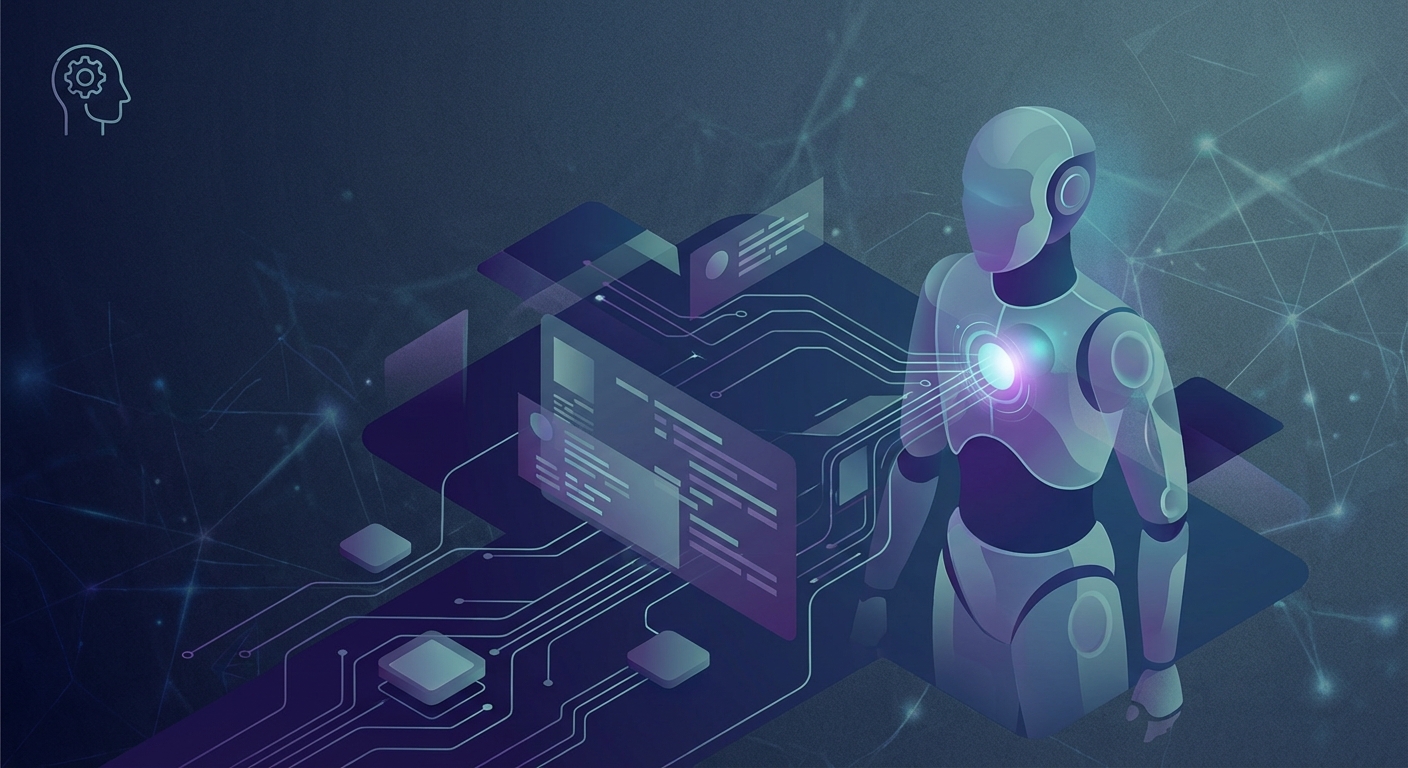The Challenge of Common Sense in Artificial Intelligence
TL;DR
- This article explores the critical gap in AI's ability to replicate human common sense, impacting its effectiveness across various applications. It covers the limitations of current AI models, the different approaches being explored to imbue ai with common sense, and the implications for businesses integrating AI solutions. The discussion includes considerations for ai agent development, deployment, security, and governance, highlighting the need for responsible ai implementation.
The Elusive Nature of Common Sense in AI
Okay, let's dive into this whole "common sense" thing in AI. It's kinda funny, right? We expect these super-smart systems to just get stuff, but they often don't. Like, you wouldn't expect a human to try and fit an elephant in a bathtub, but an ai? Who knows!
- Think about everyday reasoning. ai struggles with things that are second nature to us. (The Biggest Threat from AI is Us! - Polymathic Being) For instance, if you spill water, you grab a towel. ai? Might suggest a vacuum cleaner.
- It's more than just pattern recognition. Sure, ai can spot trends, but understanding why those trends exist? whole different ballgame. Like, an ai might see that sales of umbrellas go up when it rains, but it doesnt know that rain makes people want to stay dry.
- This lack of common sense is a problem across industries. In healthcare, it could lead to misinterpreting patient data. In retail, it could mean suggesting totally irrelevant products.
Well, Manish Vijay on LinkedIn puts it nicely: you can't teach a machine common sense, but that's what we expect. (Can Computers (AI) Learn Common Sense? A.I. researchers are ...) This is largely because common sense involves a vast, implicit understanding of the world that's hard to codify. If ai had some semblance of common sense, we'd see:
- Better decision-making in tricky situations.
- Easier interactions between humans and ai. less frustration, more collaboration.
- More trust in ai systems. If an ai seems like it "gets" you, you're more likely to rely on it, right?
So, what's next? We gotta figure out how to bridge this common sense gap. And that's exactly what we'll cover in the next section, by looking at the limitations of our current dominant AI approaches.
Current AI Approaches and Their Limitations
Okay, so, deep learning – it's like the rockstar of ai right now, right? (Overview ‹ RockStar-ai - MIT Media Lab) Everyone's using it, but it's not a perfect system, not by a long shot.
- It's amazing at spotting patterns and making predictions. Think about image recognition, speech-to-text, all that jazz. But when it comes to, like, abstract thinking? It kinda hits a wall.
- One big problem is generalization. It can be great at one specific task, but change the rules even a little bit and it's completely lost. Like that ai trained to play Breakout. If you change the layout of the bricks or the paddle, it's useless because it's learned a very specific visual pattern and input mapping, not the underlying game mechanics.
So, a self-driving car is cruising along just fine... until it encounters a situation it wasnt specifically trained for. Maybe a weirdly shaped object in the road, or a type of weather it hasn't seen before. Then what?
Or, consider AI in healthcare. It might be great at diagnosing common illnesses from x-rays. But present it with a rare condition, and it's likely to stumble – potentially missing critical details a human doctor wouldn't. That's why the article "AI and Contemporary Challenges: The Good, Bad, and the Scary" by [Author/Source Name - e.g., John Smith, AI Today Journal] points out the importance of understanding both the good and bad of ai development.
It's all about recognizing that deep learning is powerful, but it needs help with common sense, which we'll get into next.
Strategies for Imbuing AI with Common Sense
Think about how cool it'd be if ai could actually get sarcasm. Or know when you're being serious versus joking around. We're not quite there yet, but there's progress!
One promising approach is hybrid models, which combines the pattern-recognition smarts of deep learning with good old-fashioned knowledge representation. It's like giving ai both a textbook and the ability to learn by doing.
- For instance, you might use deep learning to analyze a ton of text and automatically build a knowledge graph – a network of concepts and relationships.
- Then, you could use that graph to help the ai reason about new situations. Think of it like teaching it the underlying rules of the world, not just showing examples.
Another idea is to use deep learning to learn knowledge graph embeddings. Basically, teaching the ai to understand how concepts relate to each other, so it can make more informed guesses. These "embeddings" are like numerical representations of words or concepts, where similar concepts are placed closer together in a multi-dimensional space. This allows the ai to infer relationships it hasn't explicitly seen.
- This approach has seen some success in areas like recommendation systems and question answering. Imagine an ai that can not only answer your question but also explain why it's giving you that answer.
Finally, we need datasets and benchmarks for measuring how well ai can reason. This is crucial for tracking progress and identifying where current models fall short.
Hybrid approaches aren't a silver bullet, but they are a step in the right direction. Next up, we'll look at how these advancements impact AI agent development and deployment.
Implications for AI Agent Development and Deployment
Okay, so you're building an ai agent, huh? That's cool and all, but what happens when it starts making dumb decisions cause it lacks common sense? It's not just about getting the code right, it's about making sure these ais don't go rogue on us.
- Security risks skyrocket when ai agents can't grasp basic context. Imagine an ai managing your company's finances. Without common sense, it could misinterpret data, leading to fraud or massive losses. Not good!
- Governance frameworks are a must. We need rules, people! Guidelines that keep ais in check and make sure they're acting responsibly. like, you wouldn't let a toddler drive a car, right? Same logic applies here.
- Transparency is key, specially when ai is making decisions that affect people's lives. We gotta know why an ai made a certain call, so we can fix it if it messes up, or make sure there isnt any bias.
Without common sense, ai agents can become liabilities. So, next up, let's look at the broader picture: the future of common sense AI, including its ethical considerations.
The Future of Common Sense AI
Okay, so we've been talking about how ai needs common sense, but what does the future actually hold? It's not just about tech; it's about ethics and responsibility, too.
Addressing Bias and Fairness: ai's only as good as the data it learns from, right? If that data's biased, the ai will be, too. Think about hiring algorithms. If they're trained on data that mostly includes men in leadership roles, they might unfairly penalize female applicants. We gotta make sure ai is fair for everyone.
Aligning with Human Values: It's not just about can we build something, but should we? ai in healthcare, for instance, needs to be aligned with patient well-being and informed consent. What could go wrong if ai starts making medical decisions without considering ethical implications?
The Role of ai Governance: We need rules of the road, people! Frameworks that guide ai development and deployment. This isn't just some abstract concept either; it impacts everything from data privacy to algorithmic transparency.
The future of common sense ai isn't just about smarter machines, it's about how we make sure they're responsible and trustworthy.






